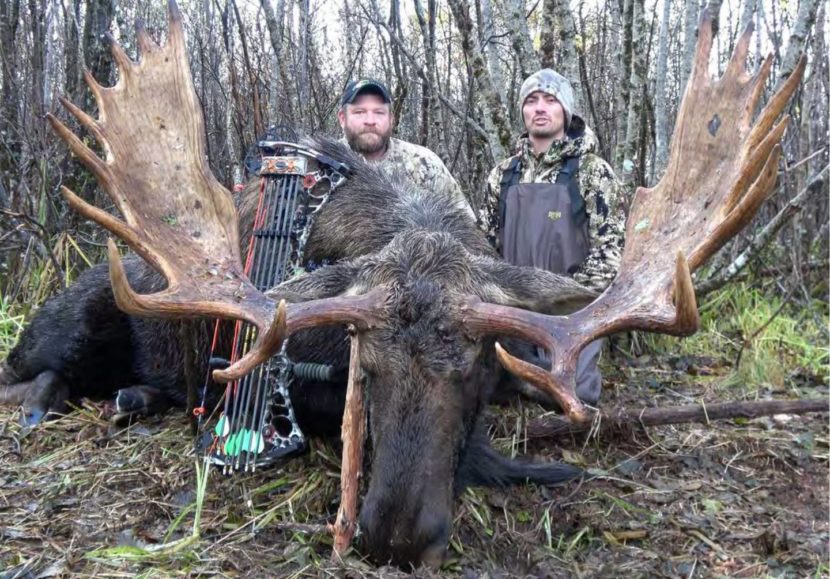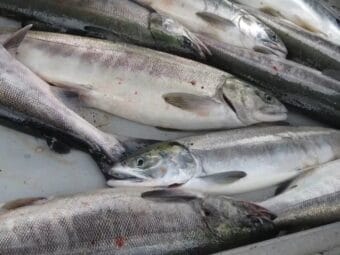
An Alaska hunting guide is spending six months in an Oregon prison for illegally selling big-game guiding services as well as multiple other violations over a five-year period.
Stephen Jeremy Hicks, a 45-year-old Anchorage resident, was sentenced in U.S. District Court last month.
The prison time was part of a plea deal in which Hicks admitted he guided hunters onto federal lands on a sheep hunt near Max Lake on the west side of Cook Inlet in 2018 without a permit. Along with prison time, he agreed to forfeit a Piper PA-18 Super Cub and pay $13,460 in restitution.
Hicks’ attorney, Kevin Fitzgerald, said his client started serving his prison sentence at the Federal Correctional Institution in Sheridan, Oregon, in late July.
It’s fairly unusual for an Alaskan guide to get a prison sentence for violating wildlife laws.
But in this case, federal prosecutors say, Hicks participated in a “multi-year wildlife crime spree” from 2015 until 2019 that triggered the need for a harsh penalty, prosecutors wrote in a sentencing memo earlier this year.
Many of the infractions he was accused of occurred while Hicks’ guiding license was on probation or revoked.
State officials put his license on probation in 2016 for failing to provide clients contracts before providing services and failing to maintain safe and satisfactory field conditions, according to the sentencing memo.
The license was permanently revoked in March 2019 by a state administrative law judge following complaints raised by a “thoroughly miserable” hunting trip in October 2017, as the judge wrote in that case.
Last month’s federal sentencing focused on the 2018 Max Lake incident, but prosecutors during the sentencing phase referenced numerous other state-level charges against Hicks.
The state’s accusations spanned a five-year period and included charges of wasting moose meat, not accompanying clients, killing bears using bait to lure them, and making use of a plane and electronic communications to spot big game.
State attorneys dismissed those charges this month after the federal sentence was handed down, according to Ron Dupois, an attorney with the Office of Special Prosecutions. That’s because the federal sentence made use of the state charges for what’s called relevant conduct, Dupois said.
Chief U.S. District Judge Sharon L. Gleason took the state charges into consideration in her sentencing decision and awarded half the restitution to the state.
The federal sentence satisfied the state’s sentencing goals, Dupois said. Hicks “had no plane, he had no guide’s license, he went to jail for six months.”
Gleason during last month’s sentencing hearing in federal court referenced the lack of investigative resources for wildlife protection, the fact that Hicks profited from his crimes, and the trust placed in big game guides by the state of Alaska, according to a statement from the U.S. Attorney’s Office in Anchorage.
The judge said “the need for prison is to make clear that blatant disregard for state and federal fish and wildlife rules will not be tolerated.”
The 2017 hunt that led to Hicks’ license revocation took place in the Cape Yakataga area between Cordova and Yakutat along the rugged northern Gulf of Alaska coast.
Several of the clients on that hunt told investigators they endured a rain-soaked trip involving a filthy cabin with a flooded woodstove, rotting food and rodent feces, and Hicks didn’t show up for several days, leaving them to fend for themselves and clean up the mess, according to a 36-page decision document.
A brown bear one client killed himself on the beach was the only animal successfully harvested on the trip, according to the decision document. Another man shot and injured a goat on a hunt with Hicks’ assistant guide. The guide, who led his client into difficult terrain for the hunt, said a steep ravine where the animal ended up was too dangerous to retrieve it and “shot the goat ‘to put it out of its misery.’”
Judge Cheryl Mandala in 2019 found Hicks “failed to provide clients with minimally adequate shelter, encouraged clients to engage in multiple violations of state hunting laws, and improperly engaged in same-day airborne hunting” — all while on probation, she wrote in the decision to revoke the license.
The practice of guiding others without a license can be legal under what are called “buddy hunts,” where people involved agree to share the costs but there’s no official guide.
Federal prosecutors, however, catalogued a number of instances where it appeared Hicks was paid for services, drew up contracts and accompanied hunters in the field after his license was revoked.
Once out of prison, Hicks will remain under supervised release for three years. During that time, he isn’t allowed to fly private aircraft or engage in any commercial hunting activity in any capacity.



